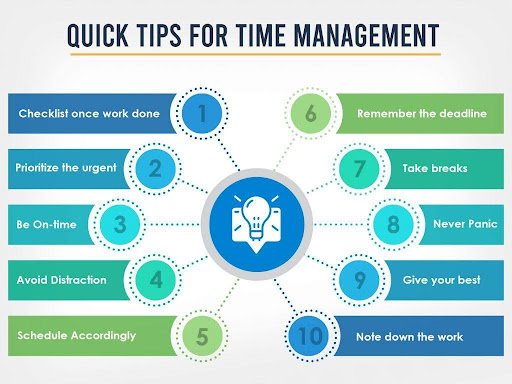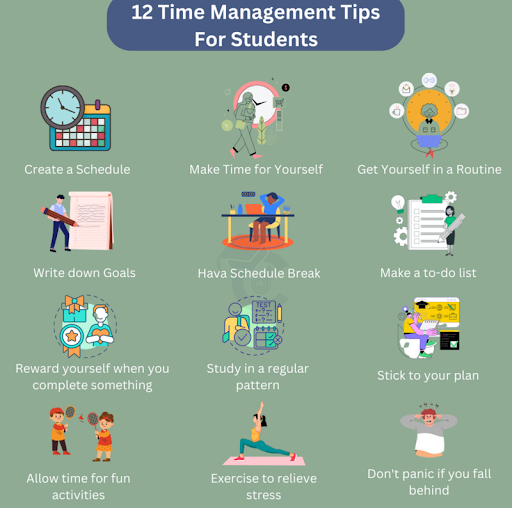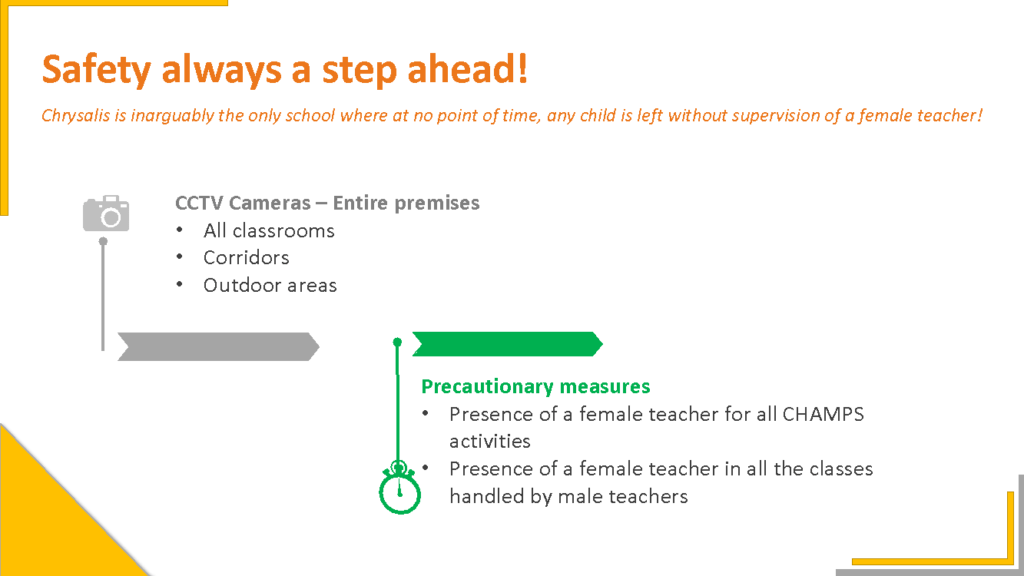Schools today prioritise success by imparting vital time management skills. Students learn practical strategies, ensuring efficient use of time. Through targeted education, they grasp the art of prioritisation, scheduling, and goal setting. These skills empower them to navigate academic and personal responsibilities, fostering a foundation for lifelong success.
Introduction: The Importance of Time Management Skills in Education
Time management is a necessary skill for students that plays an important role in their academic and personal success. In the bustling world of education, where assignments, exams, and extracurricular activities compete for attention, effective time management ensures that students can navigate these challenges with ease.
Firstly, time management helps students meet deadlines and complete assignments on time. By allocating specific time slots for studying and homework, students can avoid the last-minute rush, reducing stress and improving the quality of their work. Meeting deadlines not only reflects positively on academic performance but also instils a sense of responsibility and discipline.
Moreover, effective time management allows students to hit a balance between their academic and personal lives. The scheme of coursework, social activities, and personal responsibilities can be overwhelming, but with a well-organised schedule, students can allocate time for each aspect of their lives. This balance is important for maintaining mental and emotional well-being, preventing burnout, and fostering a holistic development approach.
Time management also develops good study habits. By breaking down large tasks into smaller, manageable chunks, students can tackle their coursework more efficiently. This approach not only aids understanding but also enhances retention, leading to better academic performance. Additionally, it provides students with the flexibility to review and revise material regularly, reinforcing their understanding of the subjects.
In nature, time management is a foundational skill that empowers students to take control of their academic journey. It enables them to make the most of their time, promoting productivity and success. As students learn to manage their time effectively, they develop skills that extend beyond the classroom, shaping responsible and organised individuals prepared for the challenges of both academic and personal life.
Integrating Time Management into the School Curriculum

Schools can seamlessly integrate time management into their curriculum through various methods. Firstly, introducing dedicated courses or workshops focused on time management skills can empower students. These sessions may cover goal setting, prioritisation, and effective scheduling. Additionally, schools can infuse time management principles into existing subjects, encouraging students to plan projects and assignments strategically.
Implementing digital tools, such as calendars and task management apps, within the curriculum can familiarise students with technology-based organisational skills. Simultaneously, educators can emphasise the importance of breaks and stress management, fostering a holistic approach to time utilisation.
Interactive activities, like group projects and simulations, can provide real-world scenarios for students to practice time management in a collaborative setting. Furthermore, incorporating reflective exercises and journaling can help students evaluate and refine their time management strategies.
By embedding these lessons throughout the curriculum, schools can equip students with essential time management skills, preparing them for academic success and lifelong effectiveness in managing their time.
Time Management for Students: Tips and Tricks

Effective time management is crucial for students to excel academically and maintain a healthy work-life balance. Here are some practical tips tailored for students:
- Set Clear Goals:
Define short-term and long-term goals. Break them down into manageable tasks. This clarity helps prioritize and focus on what truly matters.
- Prioritise Tasks:
Identify tasks based on urgency and importance. Use the Eisenhower Box method to categorise tasks into four quadrants: urgent and important, important but not urgent, urgent but not important, and neither urgent nor important.
- Create a Schedule:
Develop a weekly or monthly schedule. Allocate specific time slots for classes, study sessions, and leisure. Stick to your schedule as much as possible, but be flexible enough to adapt when necessary.
- Use a Planner:
Invest in a planner or digital calendar to track assignments, deadlines, and events. This visual aid helps you stay organized and ensures you don’t miss important dates.
- Break Down Tasks:
Large projects can be overwhelming. Break them into smaller, more manageable tasks. Tackling one step at a time makes the workload seem less daunting.
- Avoid Procrastination:
Procrastination can be a major hurdle. Combat it by setting realistic deadlines, using productivity techniques (like the Pomodoro Technique), and eliminating distractions during study sessions.
- Set Realistic Expectations:
Tell yourself the truth about your capabilities in the time you have available. Setting realistic expectations helps reduce stress and prevents burnout.
- Learn to Say No:
While it’s important to be involved in extracurricular activities, don’t overcommit. Learn to say no when your plate is already full to maintain a healthy balance.
- Take Breaks:
Incorporate short breaks during study sessions to maintain focus and prevent burnout. Physical activity during breaks can also improve overall concentration.
- Review and Adjust:
Regularly evaluate your time management strategies. Be ready to change course if something isn’t working. The secret to figuring out what works best for you is flexibility.
By implementing these practical time management strategies, students can enhance productivity, reduce stress, and achieve a healthier balance between academic and personal life.
Balancing Academics and Extracurriculars: Time Management for Students
Balancing academics and extracurricular activities is a common challenge for students, but with effective time management, it can be conquered. The key is to create a realistic schedule that allows for both study and play.
Start by prioritising tasks. Identify important deadlines for assignments and exams, and allocate specific time slots for focused study sessions. To make bigger jobs less difficult divide them into smaller, more manageable portions.
When it comes to extracurricular activities, choose those you are passionate about and can realistically commit to. Quality over quantity is essential. Once you have identified your commitments, schedule them alongside your academic responsibilities. This way, you can visualise your week and ensure a balance between the two.
Avoid procrastination by setting specific goals for each study session and rewarding yourself with a break or a bit of your favourite activity afterwards. Use tools like timers to stay on track and prevent distractions. Remember, effective time management is not about working endlessly but working efficiently.
Communication is key, whether it’s with teachers, club leaders, or teammates. Keep them informed about your schedule, and don’t hesitate to seek support when needed. Most educators and mentors understand the importance of a well-rounded education and can guide managing your responsibilities.
Lastly, take care of yourself. Ensure you get enough sleep, maintain a healthy diet, and make time for relaxation. A well-rested and balanced student is more likely to excel both academically and in extracurricular pursuits.
In conclusion, successful time management involves prioritisation, realistic scheduling, efficient work habits, and effective communication. By mastering these skills, students can navigate the demands of academics and extracurriculars, creating a fulfilling and balanced educational experience.
Parental Involvement in Developing Time Management Skills at Home
Parental involvement plays a vital role in promoting effective time management skills in children at home. As the primary influencers in a child’s life, parents can contribute significantly to the development of this essential life skill.
Firstly, parents can set a positive example by demonstrating good time management themselves. By maintaining a balanced daily routine, prioritising tasks, and adhering to schedules, parents provide a practical model for their children to emulate. Children often learn best by observing, and seeing their parents handle time effectively encourages them to do the same.
Furthermore, parents can actively engage with their children in creating routines and schedules. Collaboratively establishing a daily or weekly plan helps children understand the importance of allocating time for various activities, such as homework, chores, and leisure. This involvement not only imparts organizational skills but also instils a sense of responsibility.
Regular communication about the value of time and its finite nature is essential. Parents can discuss the importance of managing time wisely to achieve goals, meet deadlines, and reduce stress. Emphasising the consequences of procrastination and the benefits of timely completion can motivate children to prioritize their tasks.
Additionally, parents can provide gentle reminders and encouragement to help children stay on track with their schedules. This support helps reinforce the idea that managing time is an ongoing process that requires consistency and effort.
In conclusion, parents serve as critical guides in the development of time management skills at home. By modelling effective time management, collaborating on routines, fostering open communication, and offering support, parents empower their children with the tools necessary to navigate the demands of daily life successfully.
Preparing for the Future: Time Management Skills for Career Readiness
Effective time management is a critical component of career success and readiness, playing a key role in personal and professional development. Cultivating strong time management skills ensures that individuals can meet deadlines, handle tasks efficiently, and maintain a healthy work-life balance.
In the professional realm, time management directly impacts productivity. Employees who can prioritize tasks and allocate time appropriately are more likely to complete projects successfully and contribute to their team’s overall success. Meeting deadlines is a key aspect of career readiness, as it reflects reliability and commitment to organisational goals.
Moreover, time management skills are highly transferable across various workplaces and industries. The ability to organize one’s time effectively is essential whether working in an office, a laboratory, or a creative studio. Professionals who excel in time management are adaptable and can navigate different work environments, showcasing a valuable skill set that is attractive to employers.
In addition to enhancing productivity, efficient time management contributes to stress reduction. Juggling multiple responsibilities and deadlines can be overwhelming, but individuals with strong time management skills can navigate challenges with greater ease. This adaptability is a sought-after quality in the workforce, as it fosters resilience and the ability to thrive in dynamic, fast-paced environments.
Furthermore, time management is closely tied to effective communication and collaboration. Professionals who can manage their time well are more likely to coordinate with team members, attend meetings punctually, and contribute meaningfully to group projects. These collaborative efforts contribute to a positive workplace culture and build strong professional relationships.
In conclusion, honing time management skills is a crucial aspect of preparing for a successful career. It not only ensures the timely completion of tasks but also fosters adaptability, stress reduction, and effective collaboration. Employers value individuals who can manage their time effectively, making it an indispensable skill for career readiness in today’s competitive job market.
Conclusion: Cultivating Lifelong Time Management Habits in Schools
The blog emphasises the critical importance of instilling lifelong time management habits in schools. It contends that teaching students effective time management skills is essential for their future success. The key points can be summarized as follows:
Firstly, the blog underscores that time management is a skill that extends beyond academic success, influencing various aspects of one’s life. It posits that schools play a pivotal role in shaping these habits early on.
Secondly, the article highlights the correlation between strong time management skills and improved academic performance. It argues that students who learn to manage their time efficiently are better equipped to handle the demands of their studies.
Furthermore, the blog suggests that schools should integrate time management education into the curriculum, offering practical tools and strategies. This, it argues, will empower students to navigate the complexities of modern life successfully.
In conclusion, the blog advocates for a proactive approach to cultivating time management habits in schools, recognizing its far-reaching impact on students’ academic achievements and future endeavours. It contends that by prioritizing this skill, educators can contribute significantly to the holistic development of students, preparing them for the challenges they will face beyond the classroom.
For more educational content that nurtures curiosity and learning, I encourage you to visit Chrysalis High.


